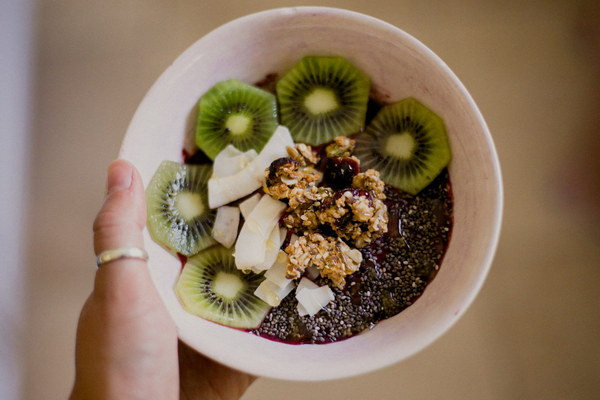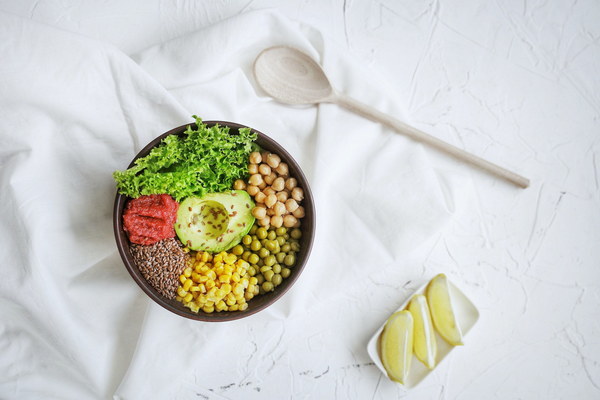Post-Radiotherapy Nutrition for Ovarian Cancer Patients A Comprehensive Guide to Healthy Eating
Ovarian cancer is a challenging disease that often requires extensive treatment, including radiotherapy. While radiotherapy is crucial in combating the cancer, it can also take a toll on the body, leading to various side effects. To support the body's recovery and strengthen the immune system, proper nutrition becomes essential. This article provides a comprehensive guide to healthy eating for ovarian cancer patients post-radiotherapy.
1. Hydration
Proper hydration is crucial for overall health and recovery. Drinking plenty of fluids helps to flush out toxins, aid digestion, and maintain the body's electrolyte balance. Patients should aim to consume at least 8-10 glasses of water per day. To make hydration more enjoyable, they can incorporate herbal teas, coconut water, or infused water with fruits and vegetables.
2. Nutrient-Rich Foods
a) Protein: Adequate protein intake is vital for tissue repair and immune function. Patients should consume lean sources of protein such as chicken, turkey, fish, tofu, and eggs. Legumes, nuts, and seeds are also excellent protein sources.
b) Fruits and Vegetables: A variety of colorful fruits and vegetables provide essential vitamins, minerals, and antioxidants. Aim to consume at least 5 servings of fruits and vegetables per day. Berries, leafy greens, cruciferous vegetables, and citrus fruits are particularly beneficial.
c) Healthy Fats: Healthy fats, such as those found in avocados, nuts, seeds, and olive oil, provide energy and support hormonal balance. These fats also aid in the absorption of fat-soluble vitamins.
d) Complex Carbohydrates: Opt for complex carbohydrates like whole grains, legumes, and starchy vegetables. These provide sustained energy and fiber, which is essential for digestion.
3. Gentle Foods
During and after radiotherapy, the digestive system may be sensitive. To ease digestion, patients should consume gentle foods such as:
a) Soups and Broths: Clear soups and broths are easy on the stomach and provide hydration and essential nutrients.
b) Mashed Potatoes and Rice: These soft, starchy foods are easy to digest and can be comforting.
c) Oatmeal: Oatmeal is a nutritious and soothing option that can be enjoyed warm or cold.
4. Avoid Certain Foods

To minimize discomfort and potential side effects, patients should avoid or limit the following foods:
a) Highly Spicy Foods: Spicy foods can irritate the digestive system and worsen symptoms such as nausea and diarrhea.
b) Fried and Greasy Foods: These foods can be difficult to digest and may exacerbate stomach discomfort.
c) High-Fat Foods: High-fat foods can slow digestion and increase the risk of nausea.
d) Processed Foods: Processed foods are often high in preservatives, sugar, and unhealthy fats, which can contribute to inflammation and other side effects.
5. Regular Meals and Snacking
To maintain a steady energy level, patients should aim to eat small, frequent meals throughout the day. This approach can help prevent nausea and support overall nutrition. Plan for regular meals and healthy snacks, such as yogurt, hummus, fruit, or nuts.
6. Consult with a Professional
It is essential for ovarian cancer patients to work with a healthcare professional or a registered dietitian to tailor their diet to their specific needs. A professional can provide personalized recommendations based on the patient's medical history, treatment plan, and individual preferences.
In conclusion, proper nutrition is a vital component of recovery for ovarian cancer patients post-radiotherapy. By focusing on hydration, nutrient-rich foods, gentle foods, and avoiding certain foods, patients can support their body's healing process and improve their overall quality of life. Always consult with a healthcare professional for personalized advice and support.









